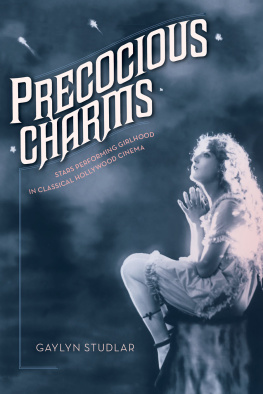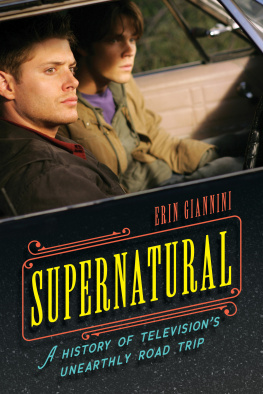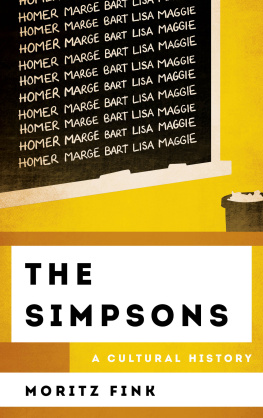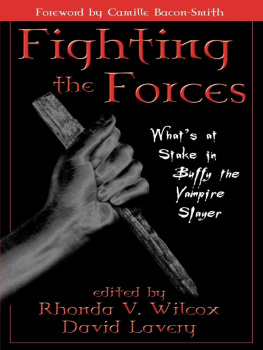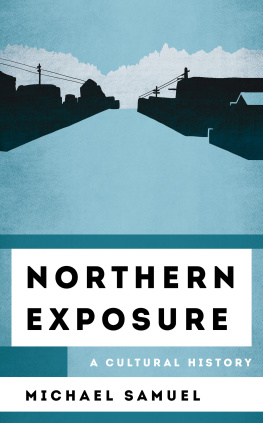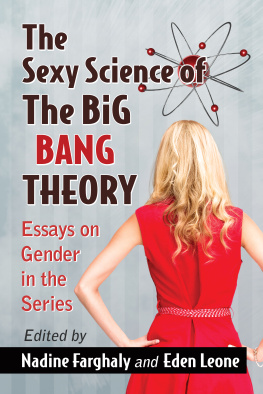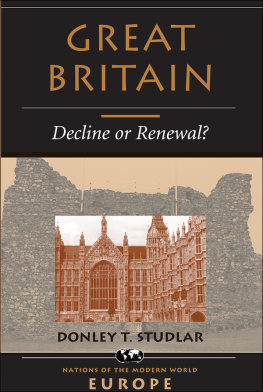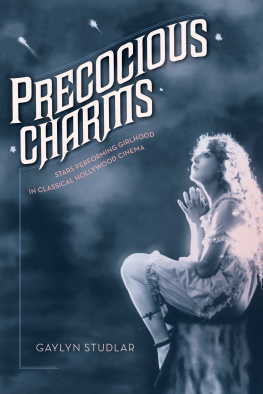TV Milestones
Series Editors
Barry Keith Grant
Brock University
Jeannette Sloniowski
Brock University
TV Milestones is part of the Contemporary Approaches to Film and Media Series.
A complete listing of the books in this series can be found online at wsupress.wayne.edu.
General Editor
Barry Keith Grant
Brock University
Advisory Editors
Robert J. Burgoyne
University of St. Andrews
Caren J. Deming
University of Arizona
Patricia B. Erens
School of the Art Institute of Chicago
Peter X. Feng
University of Delaware
Lucy Fischer
University of Pittsburgh
Frances Gateward
California State University, Northridge
Tom Gunning
University of Chicago
Thomas Leitch
University of Delaware
Walter Metz
Southern Illinois University

Have GunWill Travel
Gaylyn Studlar
TV MILESTONES SERIES

Wayne State University Press
Detroit
2015 by Wayne State University Press, Detroit, Michigan 48201. All rights reserved. No part of this book may be reproduced without formal permission. Manufactured in the United States of America.
Library of Congress Control Number: 2014954836
ISBN 978-0-8143-3976-3 (paperback); ISBN 978-0-8143-3977-0 (ebook)
Lyrics from Ballad of Paladin reprinted by permission of Hal Leonard Corporation. Song words and music by Johnny Western, Richard Boone, and Sam Rolfe. Copyright 1958 by Irving Music, Inc. Copyright renewed. All rights reserved; used by permission.
CONTENTS
ACKNOWLEDGMENTS
I wish to thank a number of people who made this book possible. First, I wish to thank Philip Sewell, television historian extraordinaire, who made the book better, first through his encouragement and then through his incredible generosity in reading chapters, answering questions, and sharing sources. Thanks also to Ina Rae Hark, who served as an insightful manuscript reader, and to the anonymous reader who also offered helpful criticism. The Office of the Dean, College of Arts & Sciences, at Washington University in St. Louis kindly provided funds for indexing. The staff of the Department of Special Collections, UCLA Library, helped me access the CBS, Inc. film and television collection. Thanks to Brett Smith for technical assistance with illustrations and to my colleague Todd Decker for helping me track down music permissions, granted for the following: The Ballad of Paladin Words and Music by Johnny Western, Richard Boone and Sam Rolfe. Copyright 1958 IRVING MUSIC, INC. Copyright Renewed. All Rights Reserved. Used by Permission. Reprinted by permission of Hal Leonard Corporation.
I want to acknowledge Annie Martin at Wayne State University Press. Never has an editor made me feel more welcomed as a person and an author. Thank you for your graciousness and for everything you have done to make this book a reality. Thanks to Kristina Stonehill at the press for her help in working out the details that brought me on board. Barry Grant and Jeannette Sloniowski were enthusiastic series editors. Press staffers Kristin Harpster, Emily Nowak, and Sarah Murphy ably shepherded the book through the production and marketing process. I want to extend my gratitude to Sue Matheson. I feel honored to count Sue as a friend and Film and History Conference trail pal. Thanks for making it fun to think and talk about buckskins, walkdowns, and all things Western. My brother, Professor Donley Studlar, was a terrific sounding board for this project and an excellent ad hoc research assistant. Finally, as always, I must thank my husband, Thomas Haslett, for signing on for the durationbrave man that he is.
Introduction
Whos going to buy this radical?
Sam Rolfe, co-creator, Have GunWill Travel (Edson 82)
Debuting in September 1957 in CBSs Saturday night lineup immediately preceding Gunsmoke, Have GunWill Travel quickly acquired a place among the top four most popular series on primetime television (Theres No Stopping). Although never surpassing Gunsmoke in drawing viewers, Have GunWill Travel maintained a position among the top ten most watched weekly programs on television during its first four years of broadcast (195761). The black-and-white half-hour episodic show was a sustained success for six years in a crowded field of Westerns that dominated television in the late 1950s and early 1960s.associated with something new on the small screen: they were adult.
CBS chief James Aubrey was credited with the term adult Western, and Gunsmoke was regarded as the prototype on television.Western was a rather amorphous category. Some suggested that the term referred merely to the intended audience (Martin, I Call 80), but most generally defined these Westerns as showing greater psychological motivation and realism (Barrett and Bourgin 53; Scott 44). One writer said that in them, Good and Evil had turned a Freudian gray (Weaver 79). The adult moniker was believed to signal changes to characters, narrative, and tone that distinguished these programs from the small-screen action-oriented oaters of Hopalong Cassidy and Gene Autry of the early 1950s, programs squarely aimed at juvenile audiences (Autry 52). The surge in popularity of television Westerns left critics, psychologists, and network executives scratching their heads as Westerns regularly held up to six of the top ten coveted slots of most watched primetime series in the late 1950s (Smith, Writer Says). In March 1959, Time devoted its cover story to explaining the phenomenon (Six-Gun Galahad). In an era characterized by what one industry wag called ratings madness, networks used copycat maneuvers in programming to best the competition, no doubt contributing to thirty prime-time Westerns broadcast in the 195960 season (Ratings Madness 3031; Boddy, 60 Million Viewers 139).

Drawing his gun. Paladin (Richard Boone), the hero of a different kind of Western.
Not just another program riding to success on a surge of interest in Westerns, Have GunWill Travel was a milestone in television history. Writing of the series in the Saturday Evening Post in 1960, Lee Edson claimed that critics were a bit awed by its impact on United States culture; its title became part of the everyday lexicon, riffed on by comedians and the general public alike (82). A CBS radio program (195860) was spun off from the TV series. Its theme song, The Ballad of Paladin, was widely popularized in several recorded versions. Have GunWill Travel made its star, former film heavy Richard Boone, into an unlikely sex symbol and one of TVs most highly paid actors. Regarded as one of the most violent TV Westerns, the series was soon implicated in a pitched cultural debate about television programming. Commercially and culturally important, Have GunWill Travel was a milestone also for its daring revisionist take on the Western within the confines of a highly circumscribed medium.
Even before it became a hit show, Have GunWill Travel was recognized as being distinctively different. Have GunWill Travel Has Aura of Difference announced Billboard in the title of its review of the first episode (Spielman).
Next page

